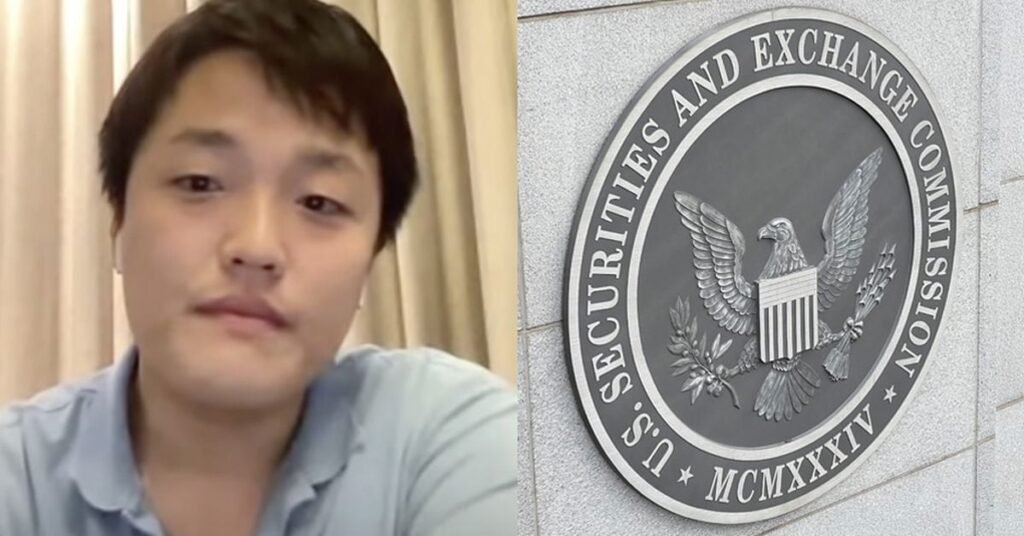
NEW
YORK
–
A
Manhattan
jury
has
found
Terraform
Labs
and
its
co-founder,
Do
Kwon,
liable
on
civil
fraud
charges
brought
by
the
U.S.
Securities
and
Exchange
Commission
(SEC)
in
connection
with
the
$40
billion
implosion
of
the
Terra
ecosystem
in
May
2022,
according
to
a
Friday
statement
from
the
SEC.
The
SEC
accused
Terraform
Labs
and
Kwon
of
misleading
investors
about
the
stability
of
its
so-called
“algorithmic”
native
stablecoin,
Terra
USD
(UST),
and
the
use
cases
for
the
Terra
blockchain.
The
jury
delivered
the
verdict
on
Friday,
just
two
hours
after
lawyers
for
both
the
SEC
and
the
defendants
gave
their
closing
arguments
at
the
end
of
the
nine-day
trial
in
New
York.
Jurors
agreed
with
the
SEC
that
Kwon
and,
under
his
direction,
Terraform
Labs
deceived
everyday
investors
about
the
nature
of
the
supposed
algorithm
that
kept
UST
pegged
to
the
U.S.
dollar.
Though
Kwon
insinuated
that
it
could
“automatically
self-heal”
in
the
event
of
a
de-peg,
it
actually
relied
on
continuous
trading
activity,
including
large-scale
trading
done
by
institutional
investors.
“We
are
pleased
with
today’s
jury
verdict
holding
Terraform
Labs
and
Do
Kwon
liable
for
a
massive
crypto
fraud,”
Gurbir
Grewal,
SEC
Division
of
Enforcement
director,
wrote
in
a
statement.
“The
defendants
caused
devastating
losses
for
investors
and
wiped
out
tens
of
billions
of
market
value
nearly
overnight.
For
all
of
crypto’s
promises,
the
lack
of
registration
and
compliance
have
very
real
consequences
for
real
people.
As
the
hard
work
of
our
team
shows,
we
will
continue
to
use
the
tools
at
our
disposal
to
protect
the
investing
public,
but
it
is
high
time
for
the
crypto
markets
to
come
into
compliance,”
Grewal
added.
SEC
attorney
Laura
Meehan
told
the
jury
during
her
closing
arguments
on
Friday
that
one
of
those
institutional
investors
–
Jump
Trading
–
had
made
a
secret
deal
with
Kwon
and
Terraform
Labs
to
rescue
UST
during
a
de-pegging
event
in
May
2021,
stepping
in
and
buying
millions
of
dollars
of
UST
off-chain
to
reinflate
its
value
and
bring
it
back
to
parity
with
the
dollar.
Meehan
added
that,
after
Jump’s
intervention,
Kwon
and
his
company
intentionally
kept
the
firm’s
rescue
mission
quiet,
wanting
instead
to
use
the
re-pegging
as
evidence
of
the
algorithm’s
effectiveness.
Lawyers
for
Terraform
Labs
and
Kwon
attempted
to
wave
Jump’s
involvement
away
as
a
regular
part
of
their
relationship
with
Terraform
Labs
as
a
market
maker.
They
said
that
all
“reasonable”
investors
knew
that
the
algorithm
that
kept
UST
pegged
to
the
dollar
was
not
a
“magical
machine”
or
“computer
that
functioned
on
its
own”
but
instead,
minting
and
burning
done
by
market
participants.
The
jury,
as
evidenced
by
their
verdict,
did
not
agree.
A
spokesperson
for
Terraform
Labs
told
CoinDesk:
“We
are
very
disappointed
with
the
verdict,
which
we
do
not
believe
is
supported
by
the
evidence.
We
continue
to
maintain
that
the
SEC
does
not
have
the
legal
authority
to
bring
this
case
at
all,
and
we
are
carefully
weighing
our
options
and
next
steps.”
Kwon
was
not
in
Manhattan
for
his
civil
trial;
instead,
he
was
stuck
in
Montenegro,
where
he
had
been
since
his
arrest
in
March
2023.
Kwon
was
caught
en
route
to
Dubai
attempting
to
use
fake
Costa
Rican
travel
documents
after
months
on
the
run.
Kwon
also
faces
criminal
charges
in
the
U.S.
and
his
native
South
Korea,
which
are
tied
to
the
implosion
of
the
Terra
ecosystem.
Both
countries
are
currently
vying
for
his
extradition,
but
his
final
destination
remains
unclear
as
Montenegro’s
Supreme
Court
weighs
the
competing
requests.
UPDATE
(19:10
UTC
April
5):
The
story
was
updated
to
include
a
comment
from
a
Terraform
Labs
spokesperson.

